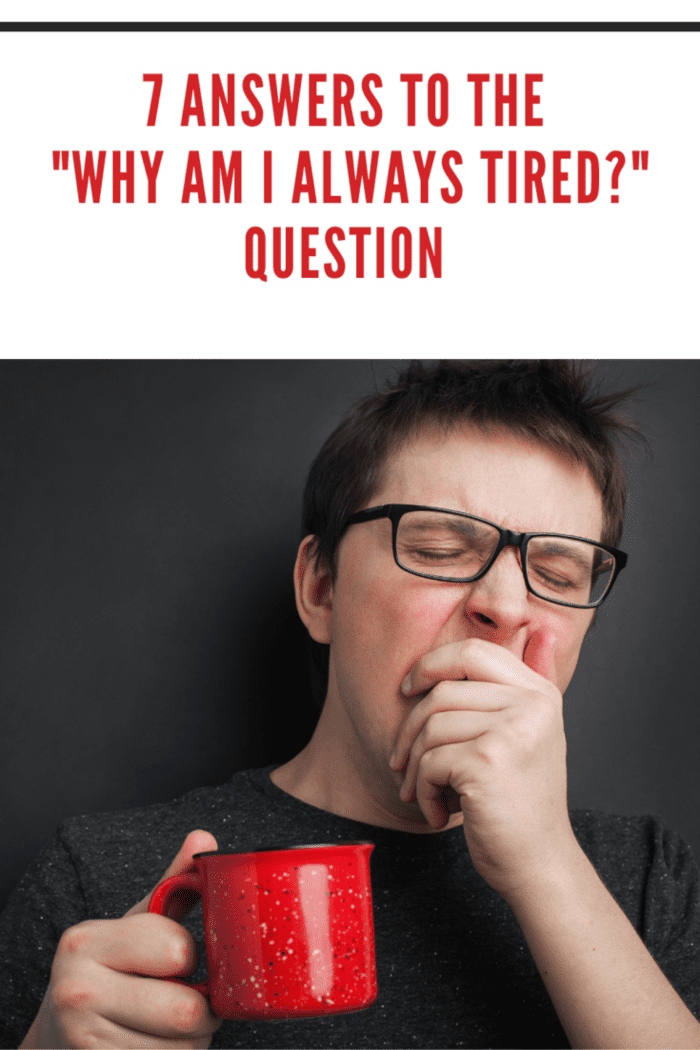Maybe you toss and turn all night, or perhaps you get in a comfortable ten hours of sleep. Either way, if you’re feeling yawning all day long, there could be other factors at play.
There are several possible reasons why you can’t seem to fight fatigue. But before you even know what these causes are, it’s important to note that there are several things anyone can do to shake off low-energy levels. These include eating healthy, taking energy supplements, avoiding smoking and alcohol, and staying hydrated.
While short-term remedies for frequent fatigue, such as energy supplements, can be effective, the best thing you can do for your health is established and treat the root cause of your tiredness. That said, here are seven possible answers to your chronic exhaustion problem.
Lack of enough sleep
You should try to snag at least seven hours’ worth of Zs daily, says academic.oup.com. Sleep is when your body and brain recharge, so it’s vital that you take your nightly rest seriously.
Regardless of your gender, age, situation, or lifestyle, restful sleep is paramount for a fatigue-free body. If you’re not sleeping, fatigue could be the least of your worries.
Insufficient rest can result in adverse health effects such as heart disease, high blood pressure, obesity, and increased accidents.
That’s not to say that any sleep is good sleep says the experts at healththoroughfare.com. According to a US Department of Health and Human Services report, sleeping more than nine hours is not healthy either. It causes daytime sleepiness, among other health issues. When it comes to rest, think quality over quantity.
For better quality sleep, try to sleep at the same time every night and turn off electronic devices an hour before bedtime.

Poor diet
Is your diet wholesome? Because if you only eat high-carb, fatty, processed food, coffee, fizzy drinks, and alcohol, your diet could be zapping your energy stores.
On the other hand, not eating enough can also cause chronic fatigue. While overeating affects your sleep quality, undereating means your body doesn’t have the necessary energy.
Eat more fruits, vegetables, seeds, nuts, and less sugary foods, processed foods, fizzy drinks, and fatty foods. To top up on your energy levels, drink plenty of water to remain hydrated throughout your day.
Stress
If your mind is constantly running life’s hamster wheel, it can eventually take a toll on your body. Some studies suggest that excess stress can lead to sleeplessness and related issues like insomnia.
If this is the case, you need to take control of the situation. Otherwise, your body will keep releasing cortisol into your bloodstream, worsening your anxiety. The constant fight-or-flight will keep you exhausted yet unable to sleep, causing a vicious cycle. If stress steals your bright eyes and bushy tail, speak to your doctor about anti-anxiety or sleep solutions.
Thyroid problems
Another common cause of fatigue is hyperthyroidism (an overactive thyroid) or hypothyroidism (an underactive thyroid).
In the case of an overactive thyroid, you may experience fatigue due to insomnia or bodily stress from the condition. The disease can cause high blood pressure, tremors, and rapid pulse.
Sleeping throughout the night or oversleeping can leave you feeling exhausted with hypothyroidism.
It’s essential to have your thyroid checked to ensure any problems receive treatment. In addition, eating foods rich in iron and selenium can help support your thyroid health.
Lack of exercise
Inactivity can lead to a feeling of tiredness. Though you might think that exercise leaves you tired, working out regularly can improve your energy levels over time. Incorporate a quick walk or jog into your daily routine for an extra dopamine boost.
Compared to those with a sedentary lifestyle, active people are much less likely to suffer fatigue. As long as you don’t over-exercise or exercise right before going to bed, you won’t have to worry about exercise draining your energy stores.
Depression or anxiety
If you’re depressed or anxious, chances are you’ll always feel tired. That’s because most depression patients suffer from sleeping problems (insomnia or hypersomnia). You either oversleep or toss and turn, leaving you to face the next day just as exhausted as before.
You need to seek professional help to deal with anxiety and depression. In addition, opening up to a friend or therapist can give you the outlet you need to deal with difficult emotions.
Other medical conditions
Your body works on a certain balance of processes and parts. If one of these is not working correctly, it affects the entire system.
That means that some medical conditions can also cause tiredness.
These include:
- Diabetes
- Anemia
- Chronic fatigue syndrome
- Cold or flu
If none of the other factors mentioned above seems to be the cause of your fatigue, then you should visit your healthcare provider to examine whether you have any of these conditions.
Takeaway
Everyone suffers from fatigue at some point. However, if eating well, exercising, sleeping enough, and even energy supplements don’t work, then there’s more to the problem. If feelings of exhaustion are starting to steal your daily life, you should schedule an appointment with your doctor.
Resources:
https://mixhers.com/blogs/resources/energy-supplements-can-help-fight-fatigue
https://www.healththoroughfare.com/news/3-natural-and-effective-ways-to-fight-fatigue/18252
